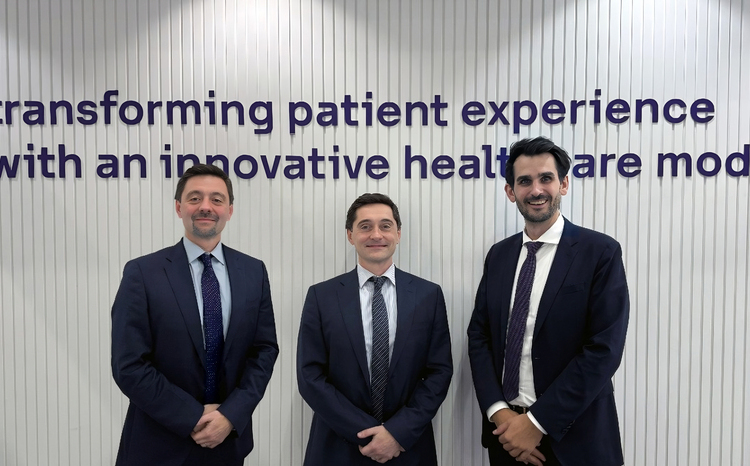ComMedica closes diagnostic imaging business
- 23 February 2006
ComMedica Limited, the UK-based developer of picture archiving and communications systems (PACS) has announced that it is closing its diagnostic imaging software business.
The company has announced a "significant restructuring", including the closure of its diagnostic imaging software business, resulting in over 100 redundancies at its Woking office and elsewhere.
ComMedica said the move followed the Department of Health’s decision to suspend deployment of CSC’s ComMedica/Kodak PACS/RIS reference solution for the North-West and West Midlands region (NWWM).
As well as suspending deployment of the CSC ComMedica/Kodak PACS/RIS reference solution in NWWM in January, CSC and Connecting for Health began negotiations with GE to provide an alternative PACS system, despite the pre-existing contracts.
"As a result, ComMedica’s role in this important project was effectively terminated. In addition, the public statements issued by CfH have had the effect of undermining ComMedica’s other customer relationships," said ComMedica.
EHI understands that a major stumbling block to any switch of supplier for NWWM was the fact that neither ComMedica or Kodak have had their contracts formally terminated. ComMedica’s decision to withdraw from the market would now appear to make this a moot point.
The company said that until the DH decision was made, "ComMedica had been ready to deliver and deploy PACS to CSC for the NHS’ Connecting for Health (CfH) Programme".
In December 2004 ComMedica signed a £33m contract with CSC to supply its PACS imaging software to NHS trusts in the NWWM. Kodak was contracted to provide the accompanying Radiology Information System (RIS).
As first reported by E-Health Insider last month delays and technical problems in the delivery of the ComMedica/Kodak PACS/RIS reference solution had by January resulted in Connecting for Health losing confidence in the CSC reference solution. Contract negotiations are believed to be at an advanced stage with GE to provide a replacement PACS solution.
The ComMedica statement said: "It seems that the Department of Health changed its mind and is now in advanced negotiations to substitute the contracted reference solution – designed to provide enterprise-wide access to diagnostic imaging and reports linked to the NHS Care Record Service – with a different PACS solution".
It is unknown whether an alternative GE PACS/RIS system would be a cluster-wide enterprise solution, as required in the original contracts awarded to LSPs by CfH. Similarly it is unclear how the additional costs of any switch would be met.
ComMedica added: "Since the inception of the National Programme for IT, ComMedica has consistently delivered its products and services in support of the vision for better patient care through the use of IT."
ComMedica CEO Mark Simon commented: “No company has been more dedicated to the objectives of delivering better patient care through the use of IT in the NHS; no group of people has been more responsive to the needs of delivering IT in a professional and repeatable fashion; and an enormous amount of time, effort and money has been invested in the creation of a UK-based company, dedicated to diagnostic healthcare innovation, independent of the hardware manufacturers.
"Instead of securing a platform for an accelerated PACS deployment in 2006, which would have delivered significant benefits to clinicians and patients, the NHS in the North West and West Midlands now faces further delay and uncertainty.
"Clinicians, patients and indeed the National Audit Office, on behalf of taxpayers, may question why the substantial investment made both by the Department of Health and by businesses such as CSC, Kodak and ComMedica in delivering leading edge technology in support of NHS modernisation has been wasted in this way.”
CSC said yesterday: "CSC is currently in negotiations regarding picture archiving and communications systems in the North West and West Midlands cluster. So as not to prejudice the outcome of negotiations it would be inappropriate for us to comment further at this time."




